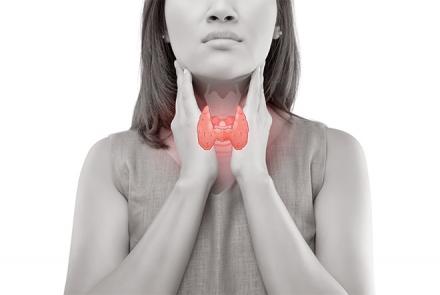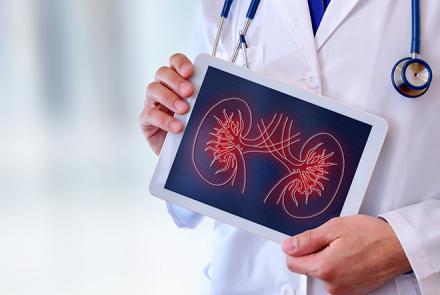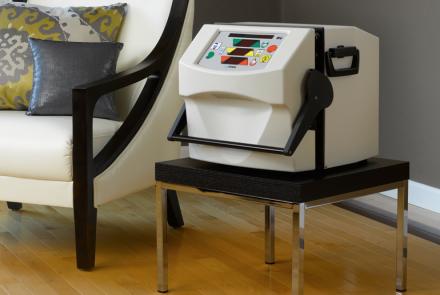
Many of us have experienced heaviness in legs that feels uncomfortable. In some cases, it is normal and goes off on its own but in other cases, it could be an alarming sign for the body. This article focuses on three main features: what causes swelling in the legs, when to be concerned about it, and when to visit a healthcare professional.
Leg swelling is caused by excess fluid retention in the tissues of the lower limbs. This fluid would normally be in the circulatory system but squeezes out instead into the muscle and soft tissue of the leg and can mounts up there to cause a swelling. Medically the terminology for this is “peripheral oedema.” It can be caused by a wide variety of issues. It’s not uncommon to have leg swelling when one is overweight or people with protein deficiency, during pregnancy, in people with decreased clearance of lymphatic fluid or in people with heart, kidney or liver disease.
A leg swelling may be swelling of the ankles, feet and legs. Some symptoms that may be noticed along with the leg swelling are:
- Pain in legs
- Itching
- Redness or pale looking legs
- Throbbing sensation
- Rashes
- Shortness of breath
Leg swelling may also be classified as pitting and non-pitting:
- Non-pitting leg swelling is more frequently brought on by disorders of the lymphatic system, such as lymphedema, in which fluid is trapped because of blocked lymphatic drainage.
- Pitting leg swelling is typically caused by problems with blood circulation, frequently associated with heart failure, kidney disease, or poor vein function, resulting in fluid buildup in the tissues that leaves indentations when pressed.
The doctor would usually evaluate this by gently pressing the finger on a swollen area for 5-15 seconds, if a pit appears after they release the pressure it indicates that there is fluid built up in the tissues.
Common causes for oedema of the ankles/feet or legs are:
- Standing for a prolonged duration
- Being overweight or obese
- Pregnancy
- Consuming excess salt
- Some common medications like (anti-hypertensive medications like Amlodipine/Nifedipine, hormonal pills containing estrogen and progesterone, steroids or antidepressant pills)
- Injuries of the leg/foot
- Insect bites
Systemic causes of leg swelling
- Kidney diseases like chronic kidney disease- would also include symptoms like tiredness, swelling around eyes, low hemoglobin, nausea, increased thirst and easy bruising.
- Heart failure- would include symptoms like shortness of breath, swelling around eyes, cough, easy fatiguability,
- Liver diseases- would also cause changes in the liver enzymes levels and bleeding and clotting factors, tiredness, jaundice and easy bruising.
- Thyroid issues (hypothyroidism)
- Mosquito borne disease like Filariasis may cause unilateral (one sided) leg swelling.
- Issues with veins – usually unilateral (only in one leg)
- Deep vein thrombosis (DVT)- clot in the leg veins that can break off and reach the lungs and can be life-threatening. The leg may appear tinted (red/blue), there will be tenderness, and the calf may feel warm to touch. One should see the doctor immediately.
- Thrombophlebitis-clots that are superficial and closer to the skin and are less likely to break off.
- Varicose veins- Blood does not flow to the heart and some leaks back causing pooling which appear as a bluish cluster of veins and may cause the leg to swell. Symptoms may include pain after standing, dry skin, ulcers, and discoloration of skin in legs.
- Lymphedema- Muscle contractions during the day's activities and tiny pumps in the lymph vessel wall force the lymph fluid through the lymph vessels. When the lymph vessels cannot sufficiently drain lymph fluid, commonly from an arm or leg, lymphedema develops. This may be due to causes like cancer, radiotherapy for cancer that can sometimes cause scarring and inflammation of lymph nodes or lymph vessels and parasitic infections like threadlike worms that block the lymph nodes.
- Anemia- low hemoglobin associated with tiredness, headaches, palpitations, mood swings and changes in menstruation in women.
- Deficiency of protein in the body (hypoproteinemia)- would also cause thinning of hair, mood swings, loss of muscle mass etc.
When to see a doctor:
If the leg swelling does not decline after trying home remedies one should seek medical advice to find out the cause of swelling and to get the right treatment.
See a doctor immediately when along with leg swelling you have:
- Associated shortness of breath
- Chest pain
- History of heart or kidney disease with increase in the leg swelling
- History of liver disease with increasing leg swelling along with abdominal swelling
- The leg feels warm to touch and appears glossy and the skin seems stretched out.
- Leg swelling with fever.
- Leg swelling not relieved by rest in pregnancy.
- Unilateral leg swelling
What can be done to prevent leg swelling?
- Increasing mobility to keep the blood flowing.
- Regular exercises like cycling, swimming, or walking.
- Eating a healthy diet, low in salt.
- Maintaining required hydration.
- Weight loss- maintain ideal body weight for the height can help avoid related leg swellings.
- Using compression stockings if one is required to sit for prolonged duration (e.g., flight travels).
- Leg elevation.
Tests to diagnose the cause of leg swelling:
Doctor will take a detailed history to find out any associated symptoms or history of coexisting issues like heart, lung, kidney disease or pregnancy etc. They would measure the vitals like blood pressure, heart rate and perform a systemic examination for heart, lungs, and abdomen. The doctor would examine the legs to note the local examination of the leg swelling site.
Tests done to find out the cause for leg swelling are:
- Blood tests including complete blood count, electrolytes and liver and kidney function tests and D-dimer blood test.
- Clotting test
- Chest x-ray and or Xray of the legs
- Doppler ultrasound to visualize the veins in the legs.
- ECG- electrocardiogram
- Urine routine test
Management of leg swelling
What can be done at home to reduce leg swelling?
- Elevate your legs when lying down using a pillow beneath them. Try this 30 minutes a time 3-4 times a day and at night.
- Leg exercises like heel-toe raises to help pump fluid from the legs back to the heart.
- Low salt diet to reduce fluid retention and buildup and consequent swelling. (For elderly patients and people with heart diseases this should be done only after consultation with the doctor to avoid low sodium levels).
- Wearing compression stockings to allow drainage.
- When travelling or in situations where one is sitting for longer duration, taking short breaks, and standing or moving around.
- Avoid tight clothing or footwear.
- Try and maintain ideal weight for the age.
Medical management:
- Medication is given to treat the underlying cause like heart, liver or kidney disease or any clots. Sometimes diuretics are prescribed to flush out excess fluid buildup in the body.
- Physical therapy to improve blood circulation and reduce swelling.
- Pneumatic compression pump therapy that uses intermittent compression by air to reduce the lymphatic oedema.
- Surgery- In severe circumstances, surgery may be necessary to correct the underlying cause of the swelling.
Citations:
- “6 Tips to Reduce Leg Swelling | Censer for Vascular Medicine.” Cvmus.com, 2022, www.cvmus.com/blog/6-tips-reduce-leg-swelling-non-invasive-and-safe.
- “21 Common Causes of Leg Swelling.” WebMD, www.webmd.com/dvt/why-legs-puffy.
- Bhutada, Abhishek S, and Thomas V Kodankandath. “Clinical Manifestations of Severe Untreated Hypothyroidism.” Cureus, 5 July 2022, https://doi.org/10.7759/cureus.26595.
- “Foot, Leg, and Ankle Swelling: MedlinePlus Medical Encyclopedia.” Medlineplus.gov, medlineplus.gov/ency/article/003104.htm.
- “Know When Swollen Legs Signal Trouble.” Mayo Clinic, www.mayoclinic.org/symptoms/leg-swelling/basics/causes/sym-20050910.
- “Leg Swelling.” Www.umms.org, www.umms.org/ummc/health-services/heart-vascular/services/vascular-dise….
- NHS. “Swollen Ankles, Feet and Legs (Oedema).” NHS, 18 Jan. 2022, www.nhs.uk/conditions/oedema/.
- “Non-Pitting Edema: What Is It, Causes, Diagnosis, Treatment and More | Osmosis.” Www.osmosis.org, www.osmosis.org/answers/non-pitting-edema.
- “What to Do about Swollen Legs.” Cleveland Clinic, health.clevelandclinic.org/when-is-leg-swelling-a-sign-of-something-serious.
- Mayo Clinic. “Lymphedema - Symptoms and Causes.” Mayo Clinic, 24 Nov. 2022, www.mayoclinic.org/diseases-conditions/lymphedema/symptoms-causes/syc-2….
















